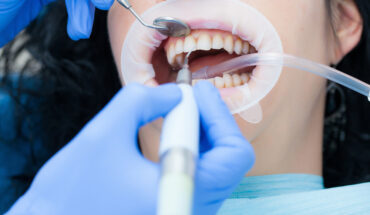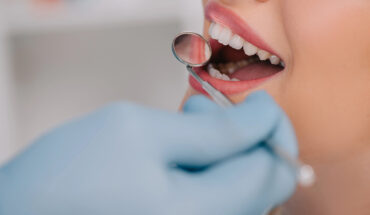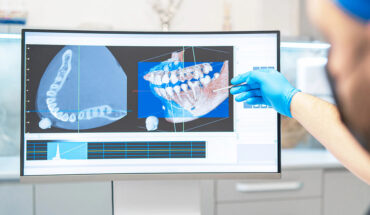
First, let’s talk a bit about TMJ: what it is, its causes, and how it is treated. TMJ is an abbreviation for temporomandibular joint or temporomandibular joint. TMD stands for Temporomandibular Joint Dysfunction and is used to describe conditions that affect the temporomandibular joint, while TMJ is also often used to describe dysfunction.
All of these, like other joints such as the knee, are subject to tension, sprains, and injuries. And shoulders. .. There are many factors that can contribute to TMJ dysfunction, such as stress, injuries, habitual behaviour, tooth alignment, and bite problems.
TMJ has many treatment options, including:
- Awareness and gentle massage and stretching techniques.
- Habit correction devices such as mouthguards and nightguards that minimize squeezing and crushing
- Orthodontics to correct alignment and occlusion
- Orthodontic jaw surgery in more serious cases.
Can Braces Cause TMJ?
TMJ failure the relationship between the TMJ problem and the curly braces is also controversial. There is a lot of evidence on this topic because it is very important for dentists, orthodontists, and the general public to recognize the relationship between the middle-aged and TMJ problems. For many dental patients Invisalign is a preference to solve their dental problem.
TMJ is an abbreviation for temporomandibular joint. The joint is the connection between the mandible and the skull in the shape of a “U” (mandible). The joints are complex because they can rotate to open and close the mouth and slide left and right and back and forth. In addition to joint complexity, it is often used during the day to speak, chew, and, in some patients, grind.
The cause of TMD cannot be identified as a specific cause. Therefore, behavior, emotions, biting, and other physical factors can contribute to the disability and are therefore considered multifactorial. The role that bites play in disability is still under debate. This should be emphasized as some patients choose to wear braces to solve TMJ problems. Changes in occlusion and tooth alignment that occur in orthodontics may not “cure” TMD.
Can Braces Relieve TMJ?
TMJ has two common non-invasive treatments. The first is a sprint or night guard that keeps your teeth apart to prevent them from rubbing against each other. Relieving pressure on the temporomandibular joint often causes the joint to return to its original position, reducing the impact of damage to that joint. Sprints are always worn, but night guards are only worn at night. Talking to your dentist or orthodontist can help you decide which is best for you and your situation.
One of the best TMJ treatments is curly braces. It’s said Bowen Therapy can help relieve TMJ and TMJ is often caused by problems in your area, quickly and effectively correcting the puncture wound is one of the best ways to relieve TMJ’s pain and pressure. If you are experiencing temporomandibular joint pain or discomfort, aligning the teeth of both jaws, rather than just side by side, can greatly improve the situation. When most people wear braces, they only think about what their teeth look like and how they are placed on their chin. Most orthodontic treatments adjust how the teeth align with each other on both jaws.




